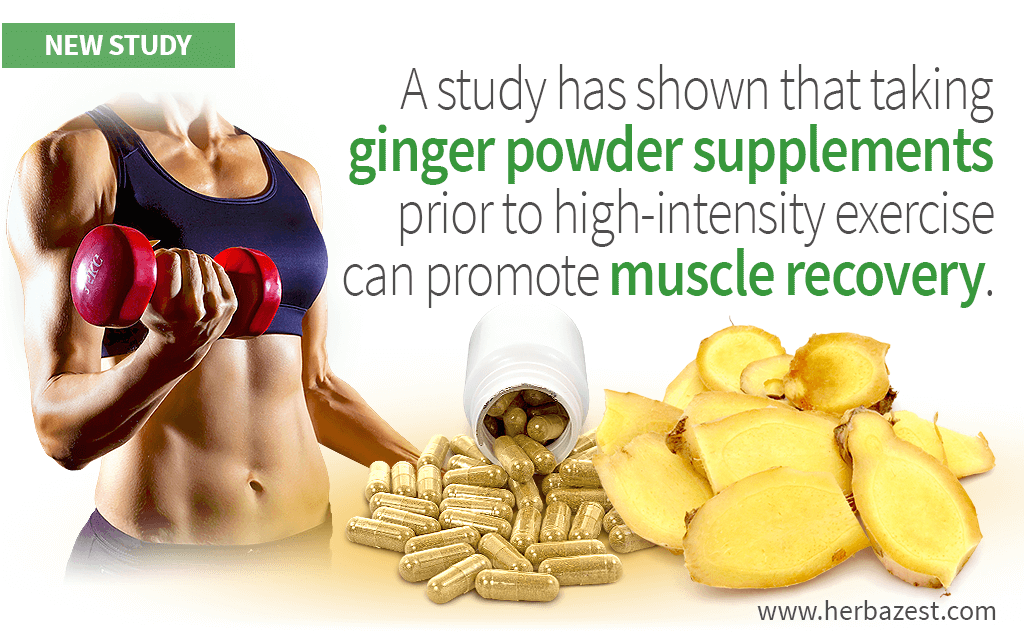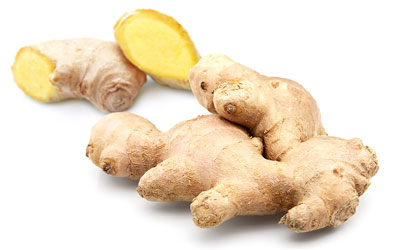For athletes and sports amateurs alike, speeding up muscle recovery is key. Delayed onset muscle soreness (DOMS) is a term for what is commonly experienced after exercise, including muscle pain, reduced range of motion, and inflammation. DOMS develops 12-24 hours after exercise and reaches its peak between 24 to 72 hours post-workout.1
Ginger may not seem like an herb with potential benefits for muscle recovery. However, its anti-inflammatory and analgesic compounds have shown beneficial for alleviating pain and inflammation, making it an attractive potential ingredient in sport supplements.2
The objective of this trial was to determine if ginger supplementation can lessen muscle damage and pain after high-intensity workouts.
The Study
This 2015 randomized, double-blind placebo-controlled clinical trial was conducted by health and sport science specialists from various American research institutions. The trial took place at the Human Physiology Laboratory at Marywood University in Scranton, Pennsylvania, USA. Its results were published in the Phytotherapy Research journal.
The study involved 20 non-weight trained male and female participants, randomly divided into two groups: one taking the placebo capsules with 4 g of dextrose, and the other taking capsules containing 4 g of ginger powder.
Participants were instructed to take one capsule for five consecutive days before performing a high-intensity elbow eccentric exercise protocol, aimed at inducing DOMS.
Various markers of muscle damage and DOMS - including upper arm circumference, repetition maximum (RM; used to measure muscle strength), muscle soreness, and blood creatine kinase (an indirect muscle damage marker) - were measured before supplementation as well as for four days following exercise.
The Results
After 24 hours following exercise, both groups observed a decreased in RM. After 48 hours, RM was only improved in the ginger group. After 72 and 96 hours, RM improvements were only seen in the placebo group.
Additionally, an increase in blood creatine kinase was recorded in both groups. It continued to increase in participants taking ginger capsules 72 and 96 hours after exercise.
According to the visual analog scale (VAS), post-workout pain was similar in both groups, without major differences between them.
What Does this Mean?
As demonstrated by this study, ginger supplementation promotes muscle strength recovery after high-intensity exercise. It does not, however, show benefits on reducing muscle damage and DOMS.
Longer and more elaborate studies on the benefits of ginger for muscles are encouraged in order to better understand their optimal application and dosage. Exploring the herb's actions on improving athletic performance and endurance could bring direct relief to many athletes, especially those involved in competitive sports. It would also make them less reliant on synthetic solutions for muscle recovery.
Other herbs that may be beneficial for post-workout recovery include maca, ashwagandha, and sacha inchi.
Sources
- Phytotherapy Research, The Effects of Pre-Exercise Ginger Supplementation on Muscle Damage and Delayed Onset Muscle Soreness, 2015
Footnotes:
- University of Delaware. (2018). DOMS: Why do your muscles hurt days after exercise? Retrieved September 11, 2020 from https://sites.udel.edu/coe-engex/2018/05/02/doms-why-do-your-muscles-hurt-days-after-exercise/
- Nutrients. (2020). Ginger on Human Health: A Comprehensive Systematic Review of 109 Randomized Controlled Trials. Retrieved September 11, 2020 from https://www.ncbi.nlm.nih.gov/pmc/articles/PMC7019938/





